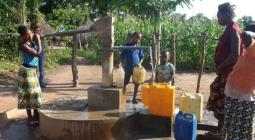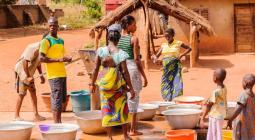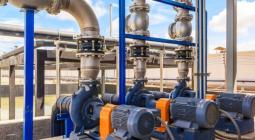TOGO: 17 boreholes to supply water to the Maritime and Plateaux regions
To improve access to drinking water in Togo's Maritime and Plateaux regions, 17 boreholes will be built from this year, spread across 17 villages. Cost of the project: 9 billion CFA francs, around 14 million euros.
One of the priorities of the Togolese government’s five-year roadmap (2020-2025) is to cover 85% of the population’s drinking water needs by 2025. Rural areas, which are most affected by water shortages, are where the bulk of the work is concentrated, based primarily on the construction of drinking water supply systems. After the Savanes and Kara regions, where a project to build 950 boreholes was launched in 2022, the Maritime and Plateaux regions will benefit from 17 new boreholes.
The future water installations will be equipped with photovoltaic solar panels to take over in the event of a power cut. Drinking water will be distributed to households in both regions via standpipes.
Financing from the GEF and BOAD
The Agence nationale d’appui au développement à la base (Anadeb), which is responsible for implementing the national grassroots policy defined by the Togolese government, is developing the water project. The organisation has issued a call for tenders for the construction of 17 solar wells in the Maritime and Plateaux regions. Interested companies have until 7 March 2024 to apply.
The company selected will receive funding of 9 billion CFA francs (around 14 million euros) from the Global Environment Facility (GEF) and the West African Development Bank (BOAD) to carry out all the work on the sites identified in the 17 villages in the two target regions. “The work will be carried out as part of the Hybridization of Diesel Engines on Multifunctional Platforms with Solar Systems Project (PHMD – PTFM),” say the Togolese authorities.
Launched on 31 January 2020 in Togo, the PHMD-PTFM project aims to provide 50 villages with solar energy to hybridise their multifunctional platforms, in particular drinking water supplies. As well as boosting access to drinking water in the West African country, the initiative will help to reduce greenhouse gas (GHG) emissions, which modify the climate.
Cover photo: By AFRIK21






